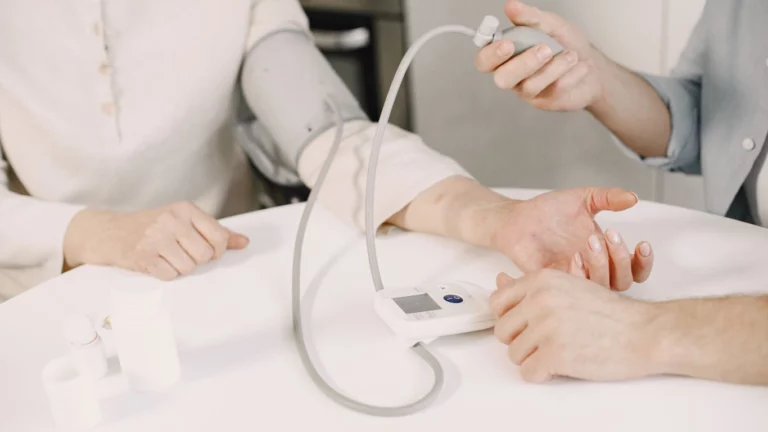How Sleep Position Impacts GERD – A Comprehensive Guide
Wondering how your sleep position can impact your GERD? It might be more important than you think! In this article, we’ll dive deep into how sleep positions influence acid reflux and offer some practical tips to improve your rest and minimize GERD symptoms.
Gastroesophageal reflux disease (GERD) can be a real pain, especially when it interrupts your sleep. If you’re someone who suffers from frequent acid reflux, you’ve probably noticed how some nights are worse than others, right? Turns out, your sleep position might be playing a bigger role than you realize in triggering or alleviating GERD symptoms.

How Sleep Positions Affect GERD
When you lie down, gravity isn’t helping your stomach acids stay where they belong. The less-than-ideal sleep positions can make it easier for stomach acid to move up into your esophagus, causing that burning sensation we all dread. Here’s a quick look at how your position matters.
1. Lying on Your Back (Supine Position)
This position is a bit of a double-edged sword when it comes to GERD. If you’re flat on your back, it can actually make GERD symptoms worse for some people. In this position, your stomach is level with your esophagus, which means there’s no gravity to keep the stomach acids down where they belong. This makes it easier for acid to flow up into the esophagus, especially if you’ve eaten a big meal right before bed.
But don’t lose hope—if you absolutely prefer sleeping on your back, elevating your head with a wedge pillow might help. Keeping your upper body elevated at an angle of about 30 degrees can help prevent acid reflux from occurring.
2. Sleeping on Your Left Side
This is hands-down one of the best sleep positions for managing GERD. It’s not just a random recommendation—sleeping on your left side helps reduce acid reflux in two ways:
- First, the position keeps the lower esophageal sphincter (LES) higher than the stomach, which prevents acid from leaking into the esophagus.
- Second, it helps with digestion, as it allows stomach contents to move through the digestive tract more efficiently.
Many people with GERD report feeling better when they sleep on their left side. Plus, it’s pretty easy to do if you’re already a side sleeper, so why not give it a try?

Tips for Improving GERD Symptoms While Sleeping
Now that we’ve looked at the sleep positions, let’s talk about some tips to help you sleep more soundly while managing GERD:
1. Elevate Your Head
If sleeping on your left side still isn’t cutting it, try elevating your head with a wedge pillow or adjustable bed. Keeping your upper body at a slight incline helps reduce the chances of acid reflux. Just be sure your head is elevated, not just your shoulders.
2. Avoid Large Meals Before Bed
Eating a big meal right before bed can make GERD worse. Try to finish eating at least 2-3 hours before you hit the hay. This gives your body time to digest and reduces the chance of acid reflux during the night.
3. Avoid Tight Clothing
Wearing tight clothing while sleeping can put extra pressure on your stomach, which can contribute to acid reflux. Try wearing loose-fitting pajamas or clothing that doesn’t constrict your stomach.
4. Sleep on Your Left Side
As mentioned earlier, this is one of the best positions for minimizing GERD symptoms. So, if you can manage it, try to sleep on your left side. It may take a little getting used to, but your body will likely thank you in the long run.
5. Stay Hydrated
Drinking enough water during the day helps your digestive system function properly. Just be cautious about drinking too much before bed, as it could lead to nighttime trips to the bathroom, disrupting your sleep.
Conclusion
Your sleep position plays a crucial role in how well you manage GERD symptoms. By opting for a left-side sleep position, elevating your head, and avoiding large meals before bed, you can help minimize the effects of acid reflux and improve your sleep quality.
Ultimately, finding a sleep routine that works for you may take some trial and error, but it’s worth it when you can sleep more soundly without the discomfort of GERD.
Appendices
References
- Mayo Clinic (2023). “Gastroesophageal Reflux Disease (GERD).” Read Article
- National Institute of Diabetes and Digestive and Kidney Diseases (2024). “GERD Management and Treatment.” Read Article
- American College of Gastroenterology (2023). “Living with GERD: Tips for Treatment.” Read Article
FAQs
- Can sleeping on your left side cure GERD? While it won’t completely cure GERD, sleeping on your left side can significantly reduce acid reflux and improve your symptoms.
- What’s the best sleep position for GERD? The left side position is generally considered the best for GERD sufferers because it helps prevent acid reflux.
- Can sleeping on your stomach make GERD worse? Yes, sleeping on your stomach can put extra pressure on your stomach and increase the likelihood of acid reflux.
- Is there any way to sleep comfortably with GERD? Elevating your head, avoiding large meals before bed, and sleeping on your left side can make a big difference in comfort.
- Can GERD affect sleep quality? Absolutely! GERD symptoms, especially at night, can disrupt your sleep, leading to fatigue and discomfort.
Disclaimer: The information provided in this article is for educational purposes only and is not a substitute for professional medical advice. Always consult a healthcare provider for diagnosis and treatment of GERD or any related condition.

Camellia Wulansari is a dedicated health writer specializing in digestive disorders, contributing valuable insights and information to the health and wellness community. With a passion for promoting well-being through knowledge, Camellia serves as a reliable source of expert content on healthusias.com.






